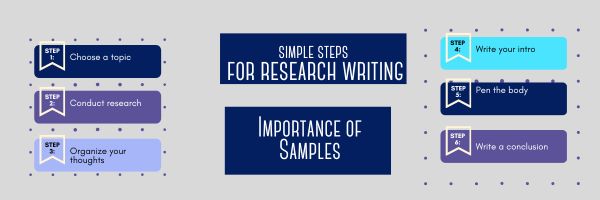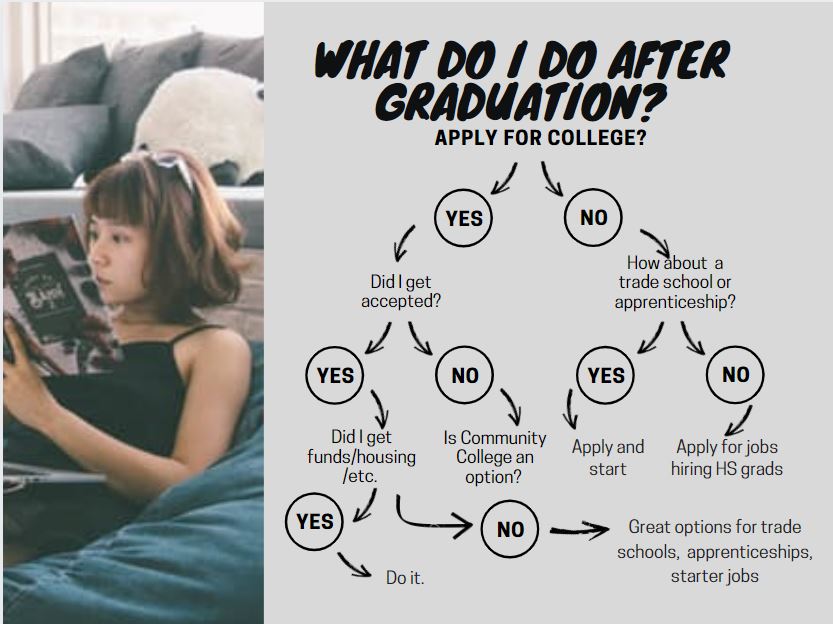Category: College
Research Tips for Paper Writing
This post will introduce you to some quick tips for writing a research paper along with the importance of samples.
Simple Steps for Research Paper Writing and the Importance of Samples
Research papers are academic writings that offer rigorous analysis, evaluation, assessment, and interpretation of a specific topic. They are similar to essays but usually more detailed and longer. The primary purpose of encouraging students to jot down a research paper is to assess their writing and research skills.
Regardless of the course (science, history, or literature), every student has to prepare a research document at some point or the other. Looking for tips to prepare outstanding work? This post will take you through the writing process of a research paper and the importance of samples. Let’s dive into the details.
Main Tips for Research Paper Writing
Share this:
- Click to share on Facebook (Opens in new window) Facebook
- Click to share on X (Opens in new window) X
- Click to share on LinkedIn (Opens in new window) LinkedIn
- Click to share on Pinterest (Opens in new window) Pinterest
- Click to share on Telegram (Opens in new window) Telegram
- Click to email a link to a friend (Opens in new window) Email
- More
How to Prepare for College
Succeeding in college is both easy and hard. It takes planning, drive, and dedication, but once you commit to the required changes, the payback is worth it. The first big tip: College is not like High School. Succeeding in the former in no way predicts success in the latter.
With High School graduation close, college on the horizon, one of our Ask a Tech Teacher contributors put together a list of great tips and ideas to help you prepare for one of the biggest steps you can take to build your future:
How to Prepare for College
College preparation is crucial to ensuring that your college life is successful. It helps boost your independence and self-discipline to tackle the difficulties you might encounter while giving you a holistic view of the whole preparation process. Excellent college preparation makes you self-aware and helps you evaluate what you’d love to do in school. It enables you to choose a learning institution depending on your strengths. While preparing for college can be challenging, knowing how to do it well can help make the process more successful. Here’s how to prepare for college.
Share this:
- Click to share on Facebook (Opens in new window) Facebook
- Click to share on X (Opens in new window) X
- Click to share on LinkedIn (Opens in new window) LinkedIn
- Click to share on Pinterest (Opens in new window) Pinterest
- Click to share on Telegram (Opens in new window) Telegram
- Click to email a link to a friend (Opens in new window) Email
- More
Tech Professions Students Should Consider
Tech industry has been working solidly for the last decade or so and promises the best careers to students. Our Ask a Tech Teacher contributor has a short list of professions that students can look forward to:
The Future of the Tech Industry: What Professions Should Students Look Into?
Technologies like artificial intelligence (AI), machine learning and cloud computing are transforming businesses. Demand has grown for individuals with the knowledge and skills to meet their needs. Universities are offering various undergraduate and postgraduate degree programs to prepare students for the future. Students can’t go wrong with future careers in information technology and computer science. These careers have the most job offers and acceptance rates. This is particularly the case for students with advanced degrees. What are some of the best tech jobs for the future?
Machine learning engineer
One of the best technology jobs of the future is as a machine learning engineer. Machine learning engineers have been ranked as one of the fastest-growing jobs in the United States. Machine learning is a branch of AI that uses big data to create algorithms. These algorithms can program a machine like a digital voice assistant or a self-driving car. They can perform and carry out tasks like humans. The machine can continue to learn and improve without any interference from humans. Natural language processing and image recognition are ways in which the machine learns.
To become a machine learning engineer, you will need a master’s degree in computer science or artificial intelligence. This will give you an in-depth understanding of topics like natural language technology and computational intelligence. You will need this for the need for a career in this field.
Share this:
- Click to share on Facebook (Opens in new window) Facebook
- Click to share on X (Opens in new window) X
- Click to share on LinkedIn (Opens in new window) LinkedIn
- Click to share on Pinterest (Opens in new window) Pinterest
- Click to share on Telegram (Opens in new window) Telegram
- Click to email a link to a friend (Opens in new window) Email
- More
4 Tips on Getting into Princeton
Getting into your dream university–especially if it’s Ivy League–is not an easy task. One of our Ask a Tech Teacher contributors has four suggestions to make it easier:
How Hard is it to Get into #Princeton University?
Located in Princeton, New Jersey, Princeton is a member of the prestigious Ivy League. It is famous for its academic excellence and distinguished faculty. The university is one of the top universities in the United States. Thus, admission is sought after by students from around the world. If you are considering applying to Princeton, it is important to understand the admissions process and what the university is looking for. (more…)
Share this:
- Click to share on Facebook (Opens in new window) Facebook
- Click to share on X (Opens in new window) X
- Click to share on LinkedIn (Opens in new window) LinkedIn
- Click to share on Pinterest (Opens in new window) Pinterest
- Click to share on Telegram (Opens in new window) Telegram
- Click to email a link to a friend (Opens in new window) Email
- More
High School Curricula and Career Education
College enrollment among high school grads grew during the early 2010’s, leveling off about 2017 when it began to drop to a current low of about 62%, approx. 4% lower than 2019. The decline may be due to increased costs, that the cost-benefit of a college degree and earnings after graduation is questionable (according to some studies), the pandemic, or a plethora of other reasons. The current trend among some colleges of not requiring ACT or SAT scores hasn’t stopped the fall.
One of the Ask a Tech Teacher contributors has come up with a good article on how to make career information more easily available to high school graduates, with a focus on those who may not want to continue to a college or University. This article reviews the many benefits of providing career education for high school students and which areas are particularly valuable. It looks at how to best include this learning into an existing curriculum.
How High School teachers can incorporate careers education into the curriculum
Including career education in the curriculum is important for a number of reasons. It will help students to better understand what they want to do when they grow up, and it will also give them a better idea of the different options that are available to them. Teaching high school students about careers also helps them to develop skills that will be useful in their future jobs, such as problem-solving and teamwork. In addition, it can also help to inspire them to pursue their dreams and goals.
Helping students understand their own strengths and weaknesses, and how these match up with different careers
It’s never too early to start thinking about career options. But for many students, the thought of choosing a single path can be daunting. One way to ease the pressure is to help students understand their own strengths and weaknesses, and how these match up with different careers. You can include this in the curriculum by helping students assess their skills and interests, students can then begin to narrow down their options and find a career that is a good fit. In addition, understanding their strengths and weaknesses can help students identify areas that need improvement. With this knowledge in hand, they can then take steps to address any deficiencies and become better prepared for their chosen career. Ultimately, by helping students understand themselves, we can give them the tools they need to make informed decisions about their future.
Share this:
- Click to share on Facebook (Opens in new window) Facebook
- Click to share on X (Opens in new window) X
- Click to share on LinkedIn (Opens in new window) LinkedIn
- Click to share on Pinterest (Opens in new window) Pinterest
- Click to share on Telegram (Opens in new window) Telegram
- Click to email a link to a friend (Opens in new window) Email
- More
Amazing Benefits of Taking a Short Course
Too often, we think ‘taking a class’ requires a commitment of weeks–or months–to master the topic. Sometimes, you don’t have that much time, they’re too expensive, you aren’t ready to commit to college level courses, or you aren’t sure about investing so much time in a topic you might not enjoy. Thankfully, in today’s learning environment, lots of learning is available via short courses–dedicated classes that are completed quickly. Here’s a great article by the Ask a Tech Teacher crew discussing :
- why take one
- their flexibility
- where to take them
- what to do if you’re ready to get started (especially for those of you who live in Australia)
Amazing Benefits of Taking a Short Course
A short course means learning both academic and physical skills. It gives opportunities to students to learn more about their specific course in a short period. The purpose of short courses is to help students grow their current set of skills. It teaches the basic skills needed for students to become a professional.
Boost Current Skill
Short courses are a great thing to add to each person’s CV, but there is more reason why taking short courses has great benefits. A short course helps students to reach the other set of skills that they need. It also gives little commitment to refresh the things students might need to work on.
AU short courses give professional recognition and a certificate that can add to each person’s CV. It also has many providers that allow students to find courses they need to enhance easily.
Flexibility
People may worry that short courses may take too much of their time,
or maybe it is not worth it. But here is some things that you need to know about the short course:
- All study materials are delivered online
- Students can study anywhere and anytime they want
- Students manage their time studying
A short course is very flexible because it is an online school where every student manages their time of study. It also gives certificates of completion which can add to each person’s portfolio.
Share this:
- Click to share on Facebook (Opens in new window) Facebook
- Click to share on X (Opens in new window) X
- Click to share on LinkedIn (Opens in new window) LinkedIn
- Click to share on Pinterest (Opens in new window) Pinterest
- Click to share on Telegram (Opens in new window) Telegram
- Click to email a link to a friend (Opens in new window) Email
- More
How to Showcase Your Skills when Applying for Your First Job
This article is for recent graduates, either from high school or college, ready to look for a first job. Here are some great tips on preparing your resume and spotlighting skills that will make you interesting to employers:
You’ve been in school for the longest time, but you are now done with college, and it’s time to look for a new job. Unfortunately, with so many candidates in search of the same job as you, you’re so anxious, wondering if you will ever get a working opportunity. Again, when looking for a new job, you are very likely to encounter job descriptions that you fear might not have the needed requirements. But the good thing is that employers might consider some skills over others.
If we are being completely honest with ourselves, your skills and potential can land you the job you want, rather than your specific background or the degree you’re holding. Employers these days are valuing soft skills. They are also willing to invest in developing their employees’ technical or hard skills after hiring them.
This is why you need to know how to showcase your skills when applying for a new job. This will help you be considered over other candidates in the same boat as you are and get offered a chance to work.
Consider going through the following points on how to showcase your skills when you are applying for a first-time job:
Share this:
- Click to share on Facebook (Opens in new window) Facebook
- Click to share on X (Opens in new window) X
- Click to share on LinkedIn (Opens in new window) LinkedIn
- Click to share on Pinterest (Opens in new window) Pinterest
- Click to share on Telegram (Opens in new window) Telegram
- Click to email a link to a friend (Opens in new window) Email
- More
Assistive Technology in Colleges
With technology, it is so much easier to offer students the assistive technology they need to pursue their education dreams. The Tech Edvocate has so great suggestions for apps and prograsms to help those with specialized needs:
What to Ask Colleges About Assistive Technology – The Tech Edvocate
10 More Educational Technology Concepts Every Teacher Should Know About
The selection process for colleges involves several factors for graduating high school students. Problems regarding tuition, academic programs, and location are often considered when students decide which college they will attend.
More about special needs from Ask a Tech Teacher
Share this:
- Click to share on Facebook (Opens in new window) Facebook
- Click to share on X (Opens in new window) X
- Click to share on LinkedIn (Opens in new window) LinkedIn
- Click to share on Pinterest (Opens in new window) Pinterest
- Click to share on Telegram (Opens in new window) Telegram
- Click to email a link to a friend (Opens in new window) Email
- More
Preparing for College or Career
Preparing students for college or career is arguably the biggest goal for High School. I like the focus of this particular principal, spotlighted in an article in The 74 Million:
Principal’s View: To Prepare Students to Enter a Tech-Focused Business World, Create Schools With the Workplace in Mind
Consider the world students face when they graduate. For many, their choices lead to college, vocational training or manufacturing careers that rely heavily on advanced technologies — from robotics and 3-D printing to equipment powered by artificial intelligence. Two decades from now, their jobs will be even more tech-focused, as workplaces adopt innovations we’ve yet to even imagine.
Check out these Ask a Tech Teacher articles and resources on College and Career:
Share this:
- Click to share on Facebook (Opens in new window) Facebook
- Click to share on X (Opens in new window) X
- Click to share on LinkedIn (Opens in new window) LinkedIn
- Click to share on Pinterest (Opens in new window) Pinterest
- Click to share on Telegram (Opens in new window) Telegram
- Click to email a link to a friend (Opens in new window) Email
- More
College or Career? The answer isn’t what you’d expect for males
I read an interesting article in the Wall Street Journal discussing the dramatic decline in men applying for and graduating from two and four-year colleges. Here’s the introductory piece of the discussion:
Men are abandoning higher education in such numbers that they now trail female college students by record levels.
At the close of the 2020-21 academic year, women made up 59.5% of college students, an all-time high, and men 40.5%, according to enrollment data from the National Student Clearinghouse, a nonprofit research group. U.S. colleges and universities had 1.5 million fewer students compared with five years ago, and men accounted for 71% of the decline.
This education gap, which holds at both two- and four-year colleges, has been slowly widening for 40 years. The divergence increases at graduation: After six years of college, 65% of women in the U.S. who started a four-year university in 2012 received diplomas by 2018 compared with 59% of men during the same period, according to the U.S. Department of Education.
While the reasons for the decline are varied and complicated, the solutions mind-numbing, if your high school students are looking for alternatives to traditional four-year college and University environment, run through this simple matrix to see which you’re better suited for:
Then, check out these articles discussing how to prepare for the choice best for you:
College or Career? Check out These
MS Career Planning: Moving in the Right Direction
Clutch Prep: When You Need Help With a Class
What to do when Johnny wants career, not college?
Whether you pick college or career, students need to prepare a resume. Here are resources to create one that’s professional and thorough:
- Google Docs–go to Docs.Google.com and select Resume template
- PorfolioGen–A free site that lets you collect all the pieces of your experience into one nicely-formatted digital place.
- Resume Builder
- Resume Generator
- Student CV Builder
- Wix–This is free with lots of templates so you can share exactly the right image. Here are examples.
- WordPress–Use a free WordPress blog, but instead convert the pages to topics discussed below. Here’s an example.
Share this:
- Click to share on Facebook (Opens in new window) Facebook
- Click to share on X (Opens in new window) X
- Click to share on LinkedIn (Opens in new window) LinkedIn
- Click to share on Pinterest (Opens in new window) Pinterest
- Click to share on Telegram (Opens in new window) Telegram
- Click to email a link to a friend (Opens in new window) Email
- More





















































